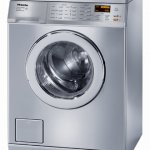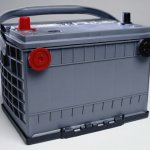How Long Does A Furnace Last
Furnaces are long term investments and so it no surprise that a frequent question asked by many consumers these days is how long does a furnace last? Although there is no explicit answer to the question, there are a number of considerations that can be taken into account to bring in some certainty relating to the life of a particular furnace. The furnace and heat exchanger industry has developed a number of standards that help consumers answer various questions they have before purchasing, including how long does a furnace last? Since the heat exchanger is the most only part of a modern day furnace, and one that is not easily replaceable, when we refer to the life expectancy of a furnace, we are actually referring to that of the heat exchanger system.
How long does a furnace last on average?
Heat exchangers in forced-air furnaces have an average age of 15 years, but they can last anywhere between 13 and 22 years depending on a number of factors. The number normally varies between that range due to various models, makes and qualities available in the market. Furnaces that are equipped with heavy-metal heat exchangers have the tendency to last longer than newer lightweight furnaces, with some lasting as long as 50 years. Steel heat exchangers, which are most common these days, normally last up to 25 years. These are the various factors that must be taken into account before accurately answering the question: how long does a furnace last?
How can the life of a furnace be increased?
Furnaces are difficult investments to make because both new and used furnaces are extremely expensive in markets all over the world. That is why it is important to not only ask how long does a furnace last, but also devise ways to increase the life of a furnace. Regardless of what precautions and procedures you take, it is imperative that the cooling and heating of the system on a regular basis will take its toll on the heat exchangers.
Regular maintenance is an essential part about increasing the life of a furnace. Experts advise that the furnace’s filter should be replaced after every 45 days so that the furnace does not overheat and get damaged. Besides that, you should take measures to prevent the level of moisture in the air in your house form going too high so that the furnace surface does not get damaged. Most essentially, however, it is important to keep the AC coil clean so that condensation does not leak onto the heat exchanger. If that happened, not only would the surface be prone to rust, but the electrical system could malfunction.
These practices are likely to improve the life of your furnace. Since furnaces are essential parts of every home, the last thing you would want yours to do is give up on you. Make sure you take care of your furnace so that you don’t have to worry about replacing it any time soon.






